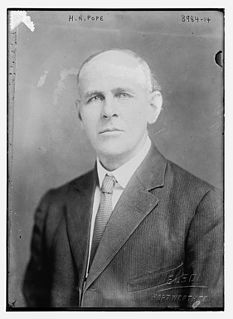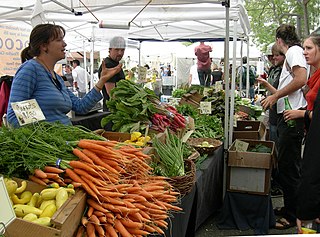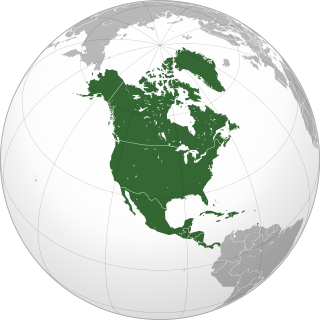
Food First, also known as the Institute for Food and Development Policy, is a nonprofit organization based in Oakland, California, USA. Founded in 1975 by Frances Moore Lappé and Joseph Collins, it describes itself as a "people's think tank and education-for-action center".
The Deutsche Gesellschaft für Internationale Zusammenarbeit (GIZ) GmbH or GIZ in short is a German development agency headquartered in Bonn and Eschborn that provides services in the field of international development cooperation. GIZ mainly implements technical cooperation projects of the Federal Ministry for Economic Cooperation and Development (BMZ), its main commissioning party, although it also works with the private sector and other national and supranational government organizations on a public benefit basis. In its activities GIZ seeks to follow the paradigm of sustainable development, which aims at balancing economic development with social inclusion and environmental protection. GIZ offers consulting and capacity building services in a wide range of areas, including management consulting, rural development, sustainable infrastructure, security and peace-building, social development, governance and democracy, environment and climate change, and economic development and employment.

National Farmers Union is a national federation of state Farmers Union organizations in the United States. It is the second largest general farm organization in the country, after Farm Bureau. The organization was founded in 1902 in Point, Texas, and is now headquartered in Washington, D.C. Today, the organization continues its original mission: to protect and enhance the economic well-being and quality of life for family farmers and ranchers and their rural communities. It does this by promoting legislation and education beneficial to farmers, and by developing cooperative buying and selling methods and businesses. The current president is Roger Johnson, and the vice president is Donn Teske. Former NFU Presidents have included Tom Buis and David Frederickson

The Earth Island Institute is non-profit environmental group founded in 1982 by David Brower. Located in Berkeley, California, it supports activism around environmental issues through fiscal sponsorship that provides the administrative and organizational infrastructure for individual projects. As of 2010, Earth Island Institute's total net assets were $7.1 million.

The United Nations Forum on Forests (UNFF) is a high-level intergovernmental policy forum. The forum includes all United Nations Member States and Permanent Observers, the UNFF Secretariat, the Collaborative Partnership on Forests, Regional Organizations and Processes and Major Groups.
Wider Opportunities for Women (WOW) is a national nonprofit organization in the United States established in 1962 by Jane Fleming and Mary Janney in Washington, D.C.
The Toronto Food Policy Council (TFPC) is a citizen body of food activists and experts responsible for generating food policy for the City of Toronto.
The Institute for Agriculture and Trade Policy (IATP) is a non-profit research and advocacy organization that promotes sustainable food, farm, and trade systems. IATP has offices in Minneapolis, Minnesota and Geneva, Switzerland, and operates both locally and internationally.
The IATP Food and Society Fellows Program provides two-year, part-time fellowships to professionals working to address health, social justice, economic viability, environmental, and other issues in food and farming systems. The program started in 2001 as a collaboration between the Jefferson Institute and the Institute for Agriculture and Trade Policy (IATP), with the guidance and support of the W.K. Kellogg Foundation. The program is currently administered by IATP and funded by the W.K. Kellogg Foundation and the Woodcock Foundation. Generally, 8-12 fellows are selected each year; 72 fellows have been selected through 2009.
Friends of the Earth Europe (FoEE) is the European branch of the world's largest grassroots environmental network, Friends of the Earth International (FOEI). It includes 33 national organizations and thousands of local groups.
Sustainability organizations are (1) organized groups of people that aim to advance sustainability and/or (2) those actions of organizing something sustainably. Unlike many business organizations, sustainability organizations are not limited to implementing sustainability strategies which provide them with economic and cultural benefits attained through environmental responsibility. For sustainability organizations, sustainability can also be an end in itself without further justifications.
The New York City Coalition Against Hunger (NYCCAH) is a nonprofit organization, which aims to “enact innovative solutions to help society move ‘beyond the soup kitchen’ to ensure economic and food self-sufficiency for all Americans”. NYCCAH works collaboratively with local, state, and national legislatures as well as New York residents and community associations. In contrast to other organizations, NYCCAH generally does not distribute food but rather concerns itself with providing technical assistance to groups which do while simultaneously affecting hunger policy at a more macro-urban scale.
Community food security (CFS) is a relatively new concept that captures emerging ideas about the central place of food in communities. At times it refers to the measure of food access and availability at the community level, and at other times to a goal or framework for place-based food systems. It builds upon the more commonly understood concept of food security, which refers to food access and availability at an individual or household level and at a national or global level. Hamm and Bellows (2003) define CFS as, “a situation in which all community residents obtain a safe, culturally acceptable, nutritionally adequate diet through a sustainable food system that maximizes community self-reliance and social justice” (p. 37). CFS involves social, economic, and institutional factors, and their interrelationships within a community that impact availability and access to resources to produce food locally. It takes into account environmental sustainability and social fairness, through measures of the availability and affordability of food in that community relative to the financial resources available to purchase or produce it.

Urban agriculture in West Oakland involves the implementation of Urban agriculture in Oakland.

The United States Food Sovereignty Alliance is a group of food producers and labor, environmental, faith-based, social justice and anti-hunger advocacy organizations, including the Applied Research Center, Family Farm Defenders, the Indigenous Environmental Network, and the National Family Farm Coalition. The USFA advocates food sovereignty, which is the right to sufficient and culturally appropriate food to all people and communities, and aims to reestablish better relations between food producers and consumers, placing the needs of local farmers, fishers, indigenous peoples and landless workers most impacted by global hunger, poverty, and unbalanced food distribution above agribusiness and larger corporations. The USFA is organized into four Alliance Teams: Land & Resource Grabs, Immigrant Rights & Trade, Defense of Mother Earth, and Racism & Leadership.
Rooted in Community National Network also referred to as R.I.C or Rooted in Community, a project of Earth Island Institute, is a non-profit organization that was founded in Boston. It is a national network that brings young people together to create food security, community gardens and fight for food justice in low income communities. Diverse group of adults and youths helps "empowers young people to take leadership in their own communities." Annual conference and regional gathering for youths to have the opportunity to travel different communities.
The Detroit Black Community Food Security Network (DBCFSN) is an urban, community-oriented, predominantly black, grassroots food justice group. The organization was initiated by a communal desire to start an organic garden collective, and has grown from its founding in 2006 with over 50 Detroit residents as members. In an effort to combat food insecurity and increase food sovereignty, DBCFSN established a community accessible food farm in 2008, known as D-Town Farm, which grows over 30 types of fruits and vegetables on seven acres of land.
Keep Growing Detroit is an organization dedicated to food sovereignty and community engagement in the cities of Detroit, Hamtramck, and Highland Park. Founded in 2013, the program designs and implements initiatives that promote the practice of urban agriculture as a mode of food justice for underrepresented communities, particularly those who do not have access to healthy food options. The goals of Keep Growing Detroit are to educate and empower community members using urban agricultural practices. Programs such as the Garden Resource Program and Grown in Detroit served as catalysts, laying the foundation for Keep Growing Detroit.








